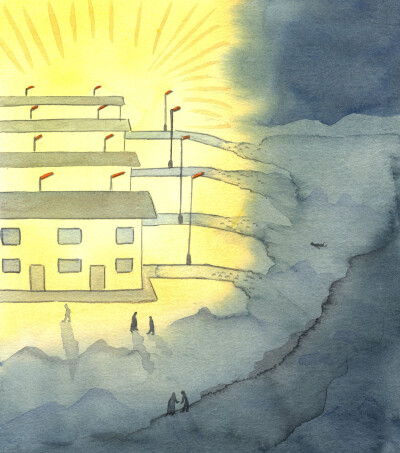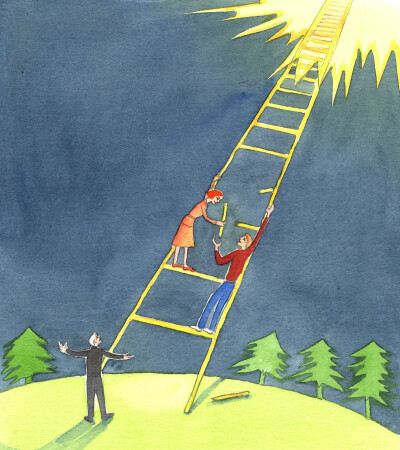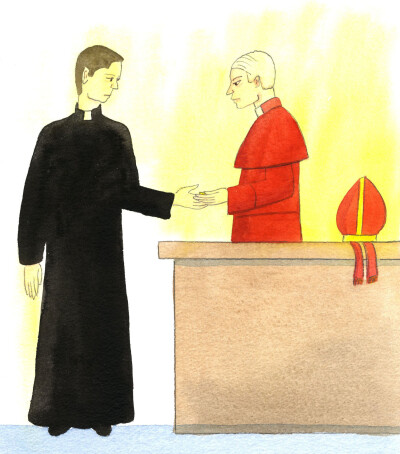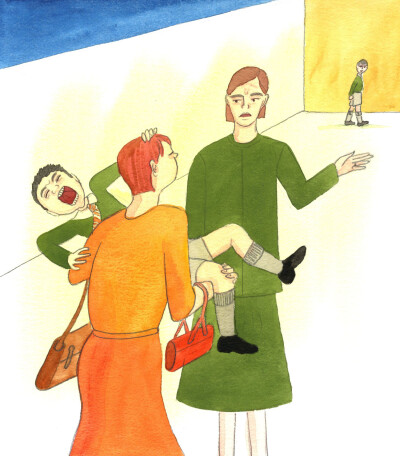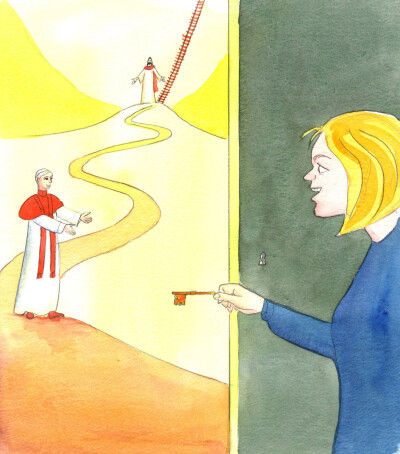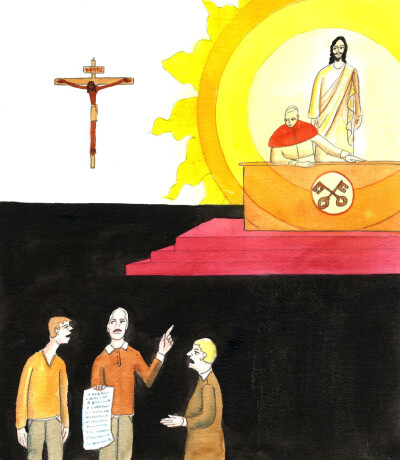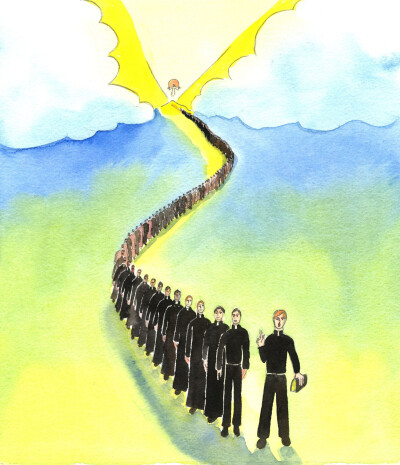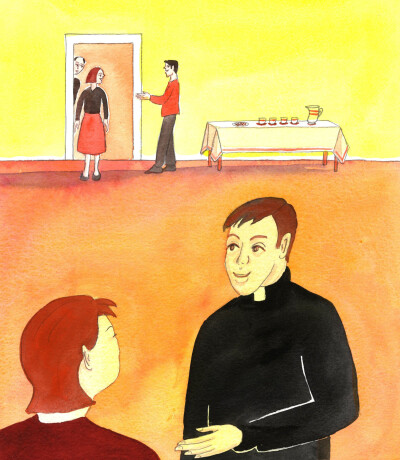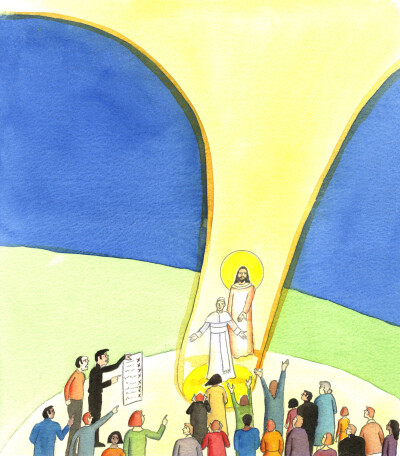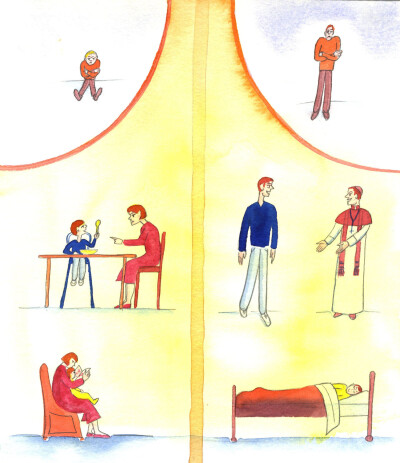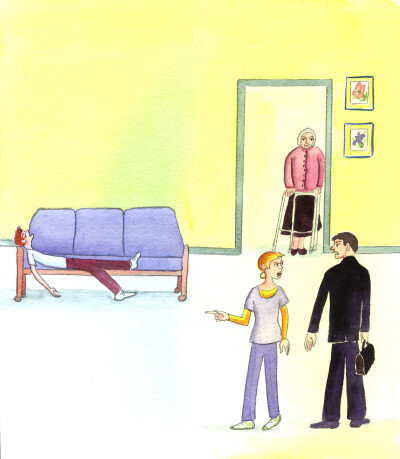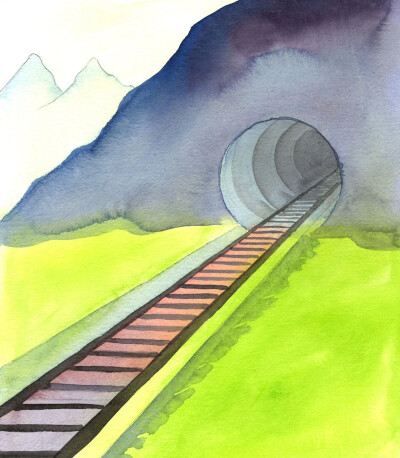Search Page
Showing 141 - 160 of 208
God the Father sent His Son to earth not just to die for our sins, but also to found a Church. If we follow her teachings about good and evil, by the grace of Christ, we bring about the fulfilment of God's plan for human life. People who claim to be practicing Catholics but who dispute long-standing teaching and discipline are like jigsaw pieces who agreed to be parts of a beautiful landscape but who now do what they please, and refuse to complete the Designer's plan.
A Catholic who ignores the Church's moral teachings, and the sacraments, is as much in danger as a person in the sanctuary at Lourdes, in winter, who decides to leave the town and stroll outwards, to go into the mountains, whilst not wearing sensible clothing. Just as the pilgrim might die of exposure, the unfaithful soul might die in mortal sin, and enter Hell.
There is a town which, to tourists, has a surface of appearance of prosperity, at its well-lit, well-paved centre. But the streets soon peter out, and the lighting ends, and the pavements disappears, as the ground slopes down to a dark, rubbish-strewn area where only the thieves and other lawbreakers feel safe. This is like the soul of someone who is well-mannered and pleasant but who, whilst having a duty to teach the Faith, disbelieves much of it and leads others astray by public declarations of disbelief.
After coming to earth, as man, Christ founded a Church, to continue His teaching: to hand on the truth about sin and goodness, to give power in the sacraments to be freed from sin and made holy. Catholics who refuse to believe in Church teachings on grave matters, and so do not avoid those sins, are like people who smash some of the rungs on the ladder by which they imagined they would reach Heaven; but by their own fault they make that ascent impossible, unless they repair it.
Bishops or priests who have been ordained to teach the truth about Christ, about sin and virtue, and Heaven and Hell, but who refuse to believe and to teach some of the important truths of the Church about morals, are like men who break some of the rungs on the one ladder which their people must climb, to reach Heaven. By such Clergy silence, the faithful are confused, or even encouraged to continue in their sins. Those Clergy members and lay-persons risk losing Heaven, and falling into Hell.
A Bishop is ordained to the fullness of the Priesthood so that he can teach the truths of the Faith with a sincere heart. When a Bishop ceases to believe in the moral teachings of the Church, or her articles of faith, and also criticizes the discipline of the Church which he should uphold, his best course is to resign. Teaching the Faith should be central to his life, not a half-hearted, occasional, sad duty.
It is an offense against God and His law of love, to ill-treat a fellow human being; yet it is an even greater offense to spread heresy, and to mock the faith of fellow-Catholics; for if we endanger their spiritual lives and their immortal souls we risk bearing some blame for causing them to move towards Hell, not Heaven.
Those who are constantly within the Church but fighting in the Church, protesting against her doctrines and disciplines, will not make much spiritual progress. Discontented, acting against Christ Who has given us the Pope to guide us, and the other Catholic Bishops, the dissenters should do what Saint Peter did before Christ. He surrendered to Christ and to His Will, just as the Saints have, through the ages, in love and obedience. Surrender is the 'key' to joy in Christ.
Just as a school child can learn nothing and make no progress if he opposes his mother's request, and has to be carried screaming into school, so a Catholic can make little progress in prayer or the spiritual life if he or she is constantly 'fighting' - by words, actions and campaigns - against the constant teaching of the Church, and her discipline.
The key to happiness within the Catholic Church, and joy in Eternity, consists of obedience to the Commandments and to legitimate discipline, and humble agreement with every matter of faith and morals - rather than doing what so many Catholics do, as they spend their lives complaining and arguing, and do not allow God to make them joyful.
It is a tragedy, greater than most Catholics realise, that in Europe, including England, it is almost seen as normal Catholic practice to be opposing the constant teaching of the Church, founded by Christ to teach us, and complaining about the disciplines imposed by those in the Church, especially the Pope, who have authority from Christ to impose them.
A hard-hearted person has a heart as strong and unyielding as the thick ice in the garden in winder, on the bird table. He has little humility or compassion, and is only too happy to declare: "Why should I do what the Pope tells me to do?" or, "Why should I forgive that friend?", or, "Why doesn't that Doctor do what I want?" These proud, unforgiving people are simply un-Christlike.
Since Christ ascended to Heaven, having asked His disciples to hand on His message, the Clergy have taught the truth all over the world, instructing people, handing on the Deposit of faith; so it is a disastrous aberration, when an individual priest choses to hand on a distorted Faith, or waters it down, or omits what is important to make it more palatable to sinners who want to continue in their sins. Language changes, but not truth. There is no room for 'creativity' in dogma, or in Liturgy.
What we believe affects how we behave, in life; so it is tragic that there is a current mind-set within certain groups of priests, Bishops and Catechists, which makes a thoroughly orthodox Catholic priest into an object of dislike and suspicion. It's as if a person who believes all that the Church teaches, and encourages others to teach it and practice it must necessarily be 'rigid, lacking in compassion', whereas those who criticise him usually offer a distorted, truncated, or watered down version of the Faith.
The Church is the Mystical Body of Christ. Just as we help the whole Church by our good deeds, thoughts and prayers, we harm the Church by our sins and failings. Even when Catholics call themselves people of 'loyal dissent', they harm the Body of Christ by their disobedience, their disbelief in Christ's teachings, given through the Church, and their lack of charity as they attack the Church and help to undermine the Faith of those who do believe. Christ looks on, as His own children hurt Him.
Christ is pleased to see Catholics arranging programmes in which lapsed Catholics are encouraged to come 'home' into the Church - but He delights in only those campaigns which offer reminders of the Catholic Faith in its fullness, with no omissions or distortions, and which genuinely help people to be reconciled to God.
God sets free from foolish ideas those who love Christ, believe in the teachings of the Church, and faithfully try to practice them, guided by the Pope and the other Catholic Bishops. Catholics who constantly grumble about teaching and discipline displease Christ, are unfair to the Popes, and distress faithful Catholics who are rightly shocked by public dissent, witnessed by the Church's enemies.
A little child can scream for attention, and dispute every instruction from his mother, so ending up alone and miserable - or he can co-operate, and experience her companionship, her wise words, and her consolations; and so it is in the Church. A Catholic can disbelieve parts of the Faith, grumble about discipline, speak with hostility about the Pope, and become a slave to his own opinions, or he can choose to co-operate with God and the Church, and in that trust and obedience find not slavery but freedom, and joy, and peace of soul, and hope.
Just as members of a loyal family always recognise their relatedness, even if one is a drug addict or has any sort of problem, so every Catholic should stay loyal to the Church of which he has been made a member, and should not be discouraged when other members express outrageous opinions on personal matters, or cause scandal by the behaviour. Our membership is a real communion with Jesus Christ, and one another, through Him: not like an overcoat that we can put off and on.
Whenever we pray for the Church, aware that she is attacked by her enemies both within the Church as well as outside, we must remember that whenever she has entered a period of apparent darkness - like a train entering a tunnel - she has always come out of it again, into a new era of fulfilment and joy. This has happened time and time again, for two thousand years.
Showing 141 - 160 of 208



